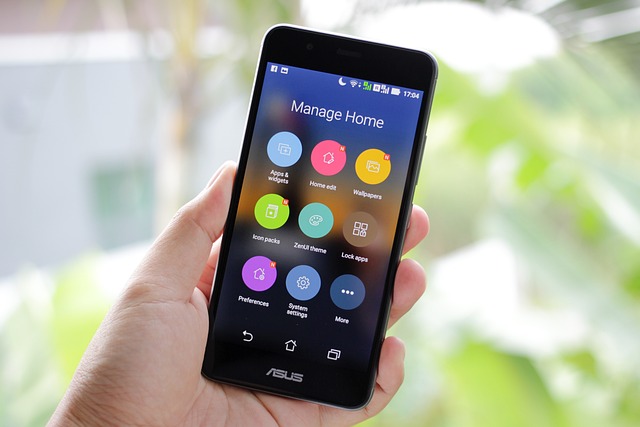The history of autodialers, from mechanical to digital platforms, has driven innovation in client outreach for West Virginia attorneys. Current regulations focus on consumer privacy and marketing consent, while future developments powered by AI offer advanced features like predictive dialing and personalized interactions. Charleston, WV, emerges as a tech hub, combining autodialer expertise with artificial intelligence to enhance marketing strategies, improve customer satisfaction, and drive regional business success.
“The future of autodialers is an exciting frontier, especially as we look towards Charleston and its potential to revolutionize the industry. From their humble beginnings, autodialers have evolved into powerful tools for businesses, but the journey is far from over. This article explores the latest trends, including AI integration, personalization, and regulatory changes in West Virginia. Discover how these factors are shaping the future of autodialer technology and its impact on consumer engagement, positioning Charleston as a hub for innovation in this dynamic sector.”
The Evolution of Autodialers: From Past to Present
The history of autodialers is a testament to technological evolution, transforming from rudimentary devices to sophisticated software solutions. In the early days, autodialers were mechanical or electromechanical systems designed primarily for mass phone calls, often used by businesses for marketing purposes. These early models could dial a series of numbers at a set speed, leaving pre-recorded messages for recipients. Over time, with advancements in computer technology, autodialing systems evolved into digital platforms capable of much more complex operations.
Today, autodialer technologies are integral to various industries, particularly in the legal sector. West Virginia attorneys leverage these tools to streamline client outreach, ensuring efficient case management and effective communication. Modern autodialers offer features such as predictive dialing, allowing for faster connection rates, and advanced analytics to track call performance, making them invaluable assets for businesses, especially those specializing in litigation or complex legal matters.
Legal Landscape: autodialer Regulations in West Virginia
In West Virginia, the legal landscape surrounding autodialers is evolving as regulatory bodies aim to balance consumer protection with innovative marketing strategies. The state has been actively discussing and implementing laws that govern the use of autodialers, or automated dialing systems, to ensure compliance with privacy rights. These regulations are particularly relevant for businesses and autodialer lawyers West Virginia as they navigate the fine line between effective marketing and potential legal issues.
Recent updates have focused on establishing clear guidelines for consent, opt-out mechanisms, and the frequency of calls, empowering consumers to control their contact preferences. As Charleston, West Virginia, joins the conversation, businesses must stay informed about these developments to adapt their practices and avoid legal complications. Understanding the evolving regulatory environment is crucial for companies aiming to utilize autodialers effectively while adhering to the law.
Enhancing Efficiency: AI Integration in Autodialing Systems
The future of autodialers is being reshaped by artificial intelligence (AI), which promises to enhance efficiency across the board, particularly for legal firms in West Virginia looking to streamline their communication strategies. AI integration in autodialing systems enables advanced features such as predictive dialing, allowing these systems to anticipate and optimize call routing based on historical data and real-time performance metrics. This not only reduces wait times for potential clients but also ensures that autodialer lawyers in West Virginia can maximize their outreach efforts.
Furthermore, AI can facilitate personalized interactions by leveraging customer relationship management (CRM) data to tailor messages and offers to specific segments of the target audience. By analyzing call outcomes and client preferences, these systems can continuously learn and adapt, improving conversion rates over time. This integration represents a significant trend in the evolution of autodialing technology, setting the stage for more intelligent and effective communication strategies in the legal sector and beyond.
Personalization Trends Shaping Consumer Engagement
In the evolving landscape of consumer engagement, personalization has emerged as a powerful tool for businesses, especially with the rise of advanced autodialer technologies. Charleston’s business environment is no exception, with trends pointing towards more tailored and targeted marketing strategies. Autodialer lawyers in West Virginia highlight that personalized interactions significantly enhance customer satisfaction and loyalty. By leveraging customer data, autodial systems can deliver customized messages, offers, and recommendations, creating a unique and relevant experience for each individual.
This shift towards personalization is driving innovations in autodial software, allowing businesses to segment their client base more effectively. As consumer preferences become increasingly diverse, personalized marketing ensures that communications remain relevant and engaging. This trend not only improves conversion rates but also fosters stronger relationships between brands and their West Virginia-based customers, setting the stage for future growth and success in the competitive Charleston market.
Future Predictions: Charleston's Role in Autodialer Innovation
Charleston, West Virginia, is poised to play a significant role in shaping the future of autodialer technology and innovation. As one of the leading legal hubs in the region, the city attracts top talent and businesses specializing in telecommunications and software development. This concentration of expertise creates an ideal environment for the growth of autodialer lawyers—professionals who navigate the complex regulatory landscape surrounding automated calling systems.
With a keen eye on emerging trends, Charleston’s tech community is preparing for the next wave of autodialer advancements. The city’s focus on fostering innovation includes investments in artificial intelligence and machine learning, which will drive more sophisticated autodialer solutions. As regulations evolve to address consumer privacy concerns, local legal experts are at the forefront of ensuring these technologies remain compliant, paving the way for broader adoption across the nation, including nearby states like Kentucky and Virginia.






